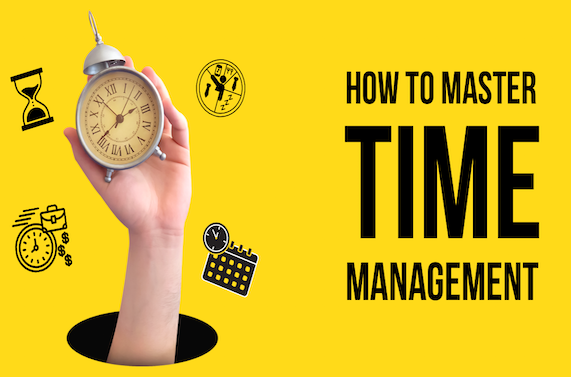Written by Jennifer Cox LCPC
ADHD symptoms can significantly impact time management, especially due to time blindness, the lack of time perception. Some difficulties that people with ADHD may experience include:
* estimating how much time is passing
* predicting how long various tasks might take
* staying on schedule
* recalling information from working memory
* ordering events in time
Here are some general tips that can help improve time management:
1. Prioritize tasks: Start by making a list of tasks and prioritize them based on their importance and urgency. Focus on high-priority or hardest tasks first to ensure they get completed on time.
2. Set clear goals: Clearly define what you want to achieve and set specific, measurable, attainable, relevant, and time-bound (SMART) goals. This will help you stay focused and motivated, possibly helping with procrastination.
3. Break tasks into smaller steps: Large tasks can be overwhelming, so break them down into smaller, more manageable steps. This will make it easier to tackle them and stay on track, possibly helping with task initiation.
4. Create a schedule or routine: Establishing a structured routine can help you stay organized and make better use of your time. Set aside specific times for different activities, including work, home, family, hobbies, friends, etc. By doing so, you know what is coming next, possibly decreasing distraction.
5. Use technology: Utilize certain apps such as the calendar, task management, reminders, alarms, notes for to-do lists, etc. Don’t forget to track your progress when you can by marking off things completed, this could help increase dopamine by seeing what you have accomplished.
6. Use visuals: Develop a planning/reminder system such as dry erase board, paper calendar or post-it notes in areas around the house.
7. Avoid multitasking: Multitasking can lead to decreased productivity and increased errors. Instead, focus on one task at a time and give it your full attention.
8. Minimize distractions: Identify and minimize/eliminate distractions that can interrupt your focus and consume your time. This may include turning off notifications on your phone, finding a quiet workspace, using fidgets, or using productivity apps that block certain websites or apps.
9. Take regular breaks: Taking short breaks at regular intervals can help refresh your mind and improve focus. Use these breaks to relax, recharge, and avoid burnout.
10. Practice self-care: Before anything else, prioritize self-care activities such as getting enough sleep, exercising regularly, eating healthy meals, and practicing stress-management techniques. Taking care of yourself will improve your overall well-being, keep your executive functioning skills going, and give you more energy to manage your time effectively.
Another tool becoming increasingly popular for treating ADHD in counseling is CBT which is a type of therapy that focuses on training your brain to reframe the way you think and improve the way you function.
For example:
-developing a growth mindset vs fixed mindset can help one focus on improving time management rather than regretting previous situations were one struggled
-consider what you are telling yourself ‘I am not good at anything’ vs ‘I am good at xyz and can learn to do this task in front of me’
-look at situations as challenges vs problems
-image the future and how you will feel when things are accomplished such as won’t I feel better if I start preparing for that meeting, test, etc a couple days before vs the morning of? The more vividly you can imagine feelings and consequences, the more motivating it will be
PARENTS:
Children with ADHD may require extra support if they are experiencing difficulties with time management. Things to consider:
* create reliable, structured routines
* plan their day with them
* give simple, specific instructions
* create immediate incentives for completing certain activities or tasks on time (the further away a potential reward is, the less people with ADHD are motivated by it)
* use visuals such as dry erase boards or post-it notes
* speak to teachers at school to obtain additional support for the child
* praise the child’s positive actions
Remember, improving time management skills takes time and practice. Experiment with different strategies and find what works best for you.
ADHD expert Russell Barkley has famously said that ADHD is not a disorder of knowing what to do, it’s a disorder of doing what you know — at the right times and places. This means that individuals with ADHD may have the knowledge of effective time management techniques, but struggle with implementing them in a timely manner.
Understanding each of the executive functions and how they can impact your day to day, can help one understand why ADHD is a serious disorder – This is a disorder that involves self-control, self-care, self-regulation, and self-motivation to get through your day.
Remember: Seeking strategies and support from ADHD coaches or therapists who specialize in ADHD can provide valuable guidance and personalized strategies for managing time effectively. Please keep in mind that strategies for managing time with ADHD may vary from person to person, so it’s important to find approaches that work best for individual needs and preferences.
For more information or help with executive functioning, contact 815-363-0864 or info@echcounseling.com


